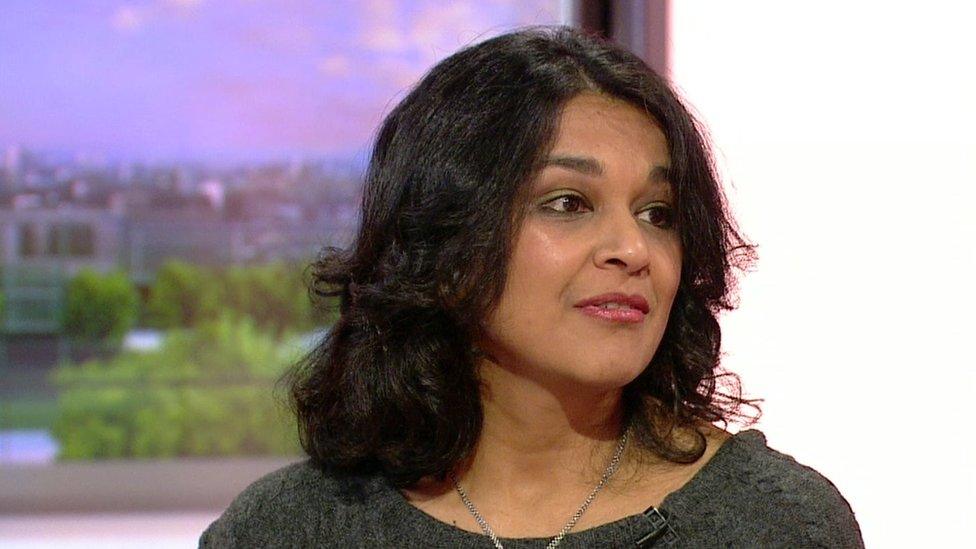Butterfly effect - how a mother's loss opened the conversation on baby death
- Published
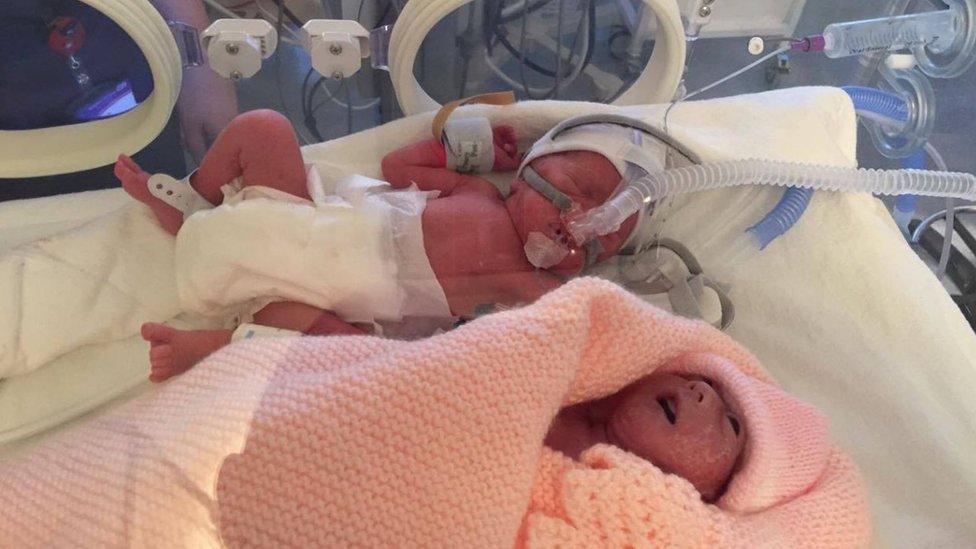
Millie Smith gave birth to twin girls, knowing that one of them would soon die.
Skye and Callie were born prematurely at Kingston Hospital on 30 April.
Twelve weeks into her pregnancy, Millie discovered one of her babies had anencephaly, external - a condition where the skull does not properly form, leaving the brain exposed.
"I was told one of my babies will have no chance of survival," says Millie.
"My baby was only expected to live a few seconds."
Baby Skye died at just a few hours old. Twin Callie is thriving and is now seven weeks old.
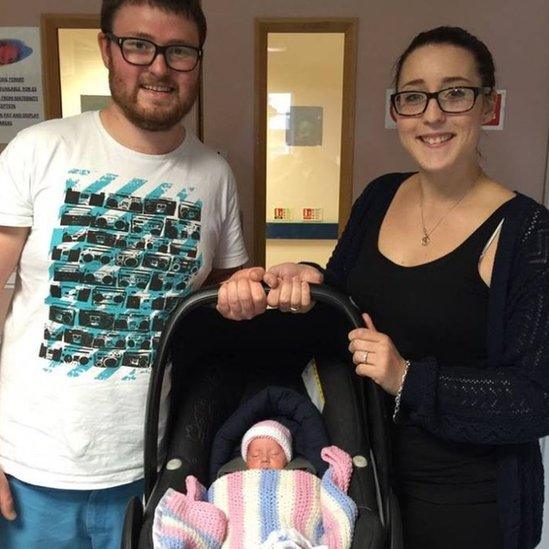
"We had a couple of scares with Callie, but she is fine," says Millie.
But it was a passing comment made by a mother that led Millie to come up with a way to inform people of a death of a baby from a multiple birth.
"I was in a neonatal ward with Callie, and there were three sets of twins crying," she says.
"A parent who didn't know what I'd been through turned to me and said, 'You are so lucky you don't have twins.'
"When she said this to me, it just broke me.
"I know the mother would have felt bad if she knew how her words affected me."
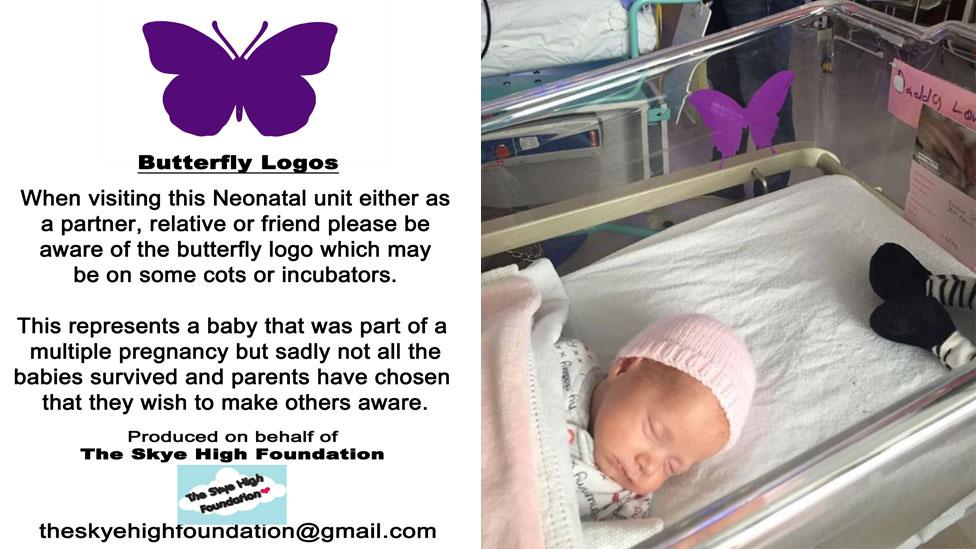
"I felt there should be something like a small symbol to let people know that my baby had died.
"I thought of a butterfly coloured purple, for either a girl or boy, that could be put on cots."
The idea of sticking purple butterflies on to the cots, indicating a loss of a sibling was adopted by her local hospital.
"Our aim is to get these butterflies into all hospitals across the UK.
"Instead of stickers, the butterflies will be printed on card and laminated, and each hospital would have a template to make these themselves.
"Also, this allows parents to take the card home in their memory box."
Charity work
The purple butterfly idea inspired Millie and fiance Lewis to start the Skye High Foundation to raise money to support bereaved families in their time of grief.
They are hoping to raise £10,000 for a counsellor at Kingston Hospital.
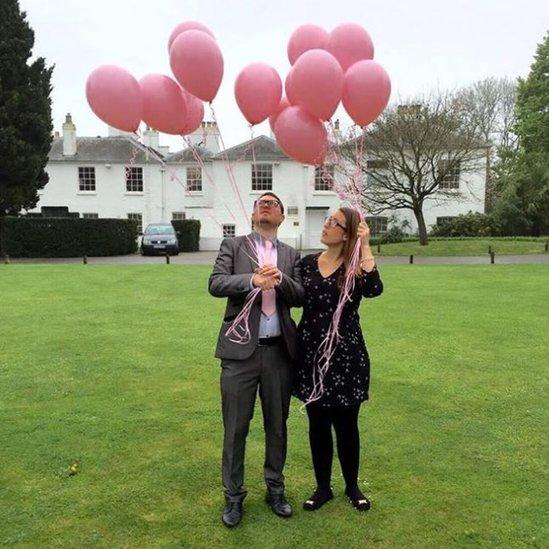
When Millie posted on the foundation's Facebook page, external about the purple butterfly initiative, the post went viral.
"I couldn't believe the response - there were over 1,000 shares of my post," says Millie. Now, that figure has doubled.
"I was also contacted by the Neonatal Research, external [group, which] has a Butterfly Project doing similar work to me.
"Charity work was something very new to me as I was very career-focused, but I am learning every step of the way.
"It was my way of dealing with what had happened - it was a turning point for me.
Specialist midwife
"I was fortunate to have a bereavement midwife.
"She was there during the birth, when Skye passed away, and when I'm having a bad day.
"But she is not a counsellor, and I think it is important that counselling is available."
Jo Bull, a specialist midwife in bereavement, helped Millie through her ordeal.
"My role involves helping women who have lost a baby before birth or who subsequently dies," says Jo.
"In Millie's case, she knew what was going to happen, and I was involved quite early on.
"But not every trust in England has a specialist midwife.
"Stillbirth rates have not been reduced in a long time.
"And, although all midwives can support parents with what they are going through, the specific specialist role is not widely available."
Taboo subject
Jo emphasises that although she helps bereaved parents, she is not a trained counsellor.
"I am with parents on their journey until the post-natal period, and advise on funeral arrangements and help parents come to terms with what has happened," she says.
"I think we should talk about [baby death] more, as the more we talk to friends, family and others, the more likely you might hear from someone who has gone through the same thing.
"It's only beginning to be talked about, but it's still classed as taboo.
"The last thing people want who are going through this is for people to be ignoring it. It is terribly upsetting."
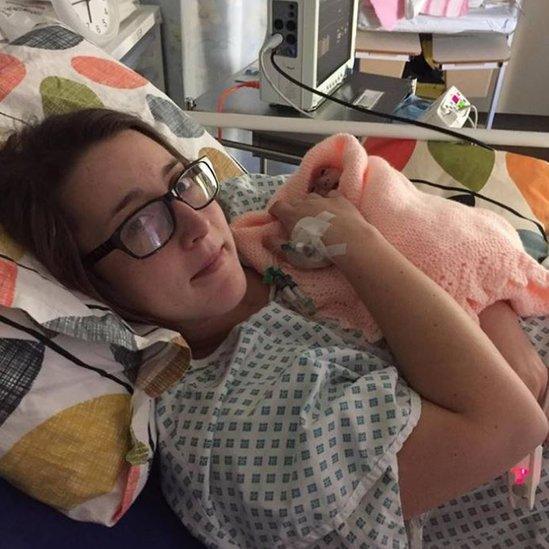
Millie says her main objective is to get people talking about babies who die.
"People don't talk about a loss of a baby - they feel awkward," she says.
"Even some nurses didn't know what to say.
"The thing I am most proud of is that it has got people talking about it.
"I want to support families, the butterfly idea, and anything else that can make a difference."
- Published4 February 2016
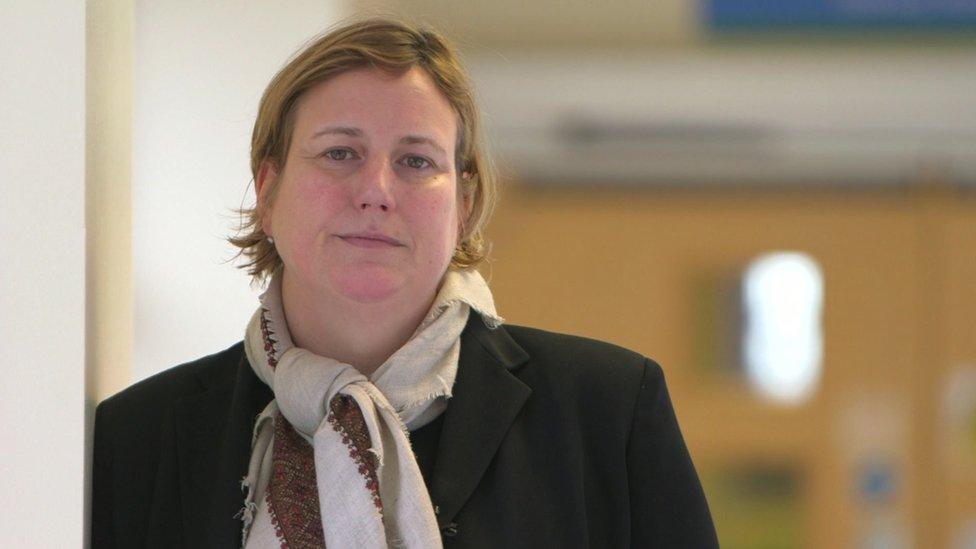
- Published3 November 2015
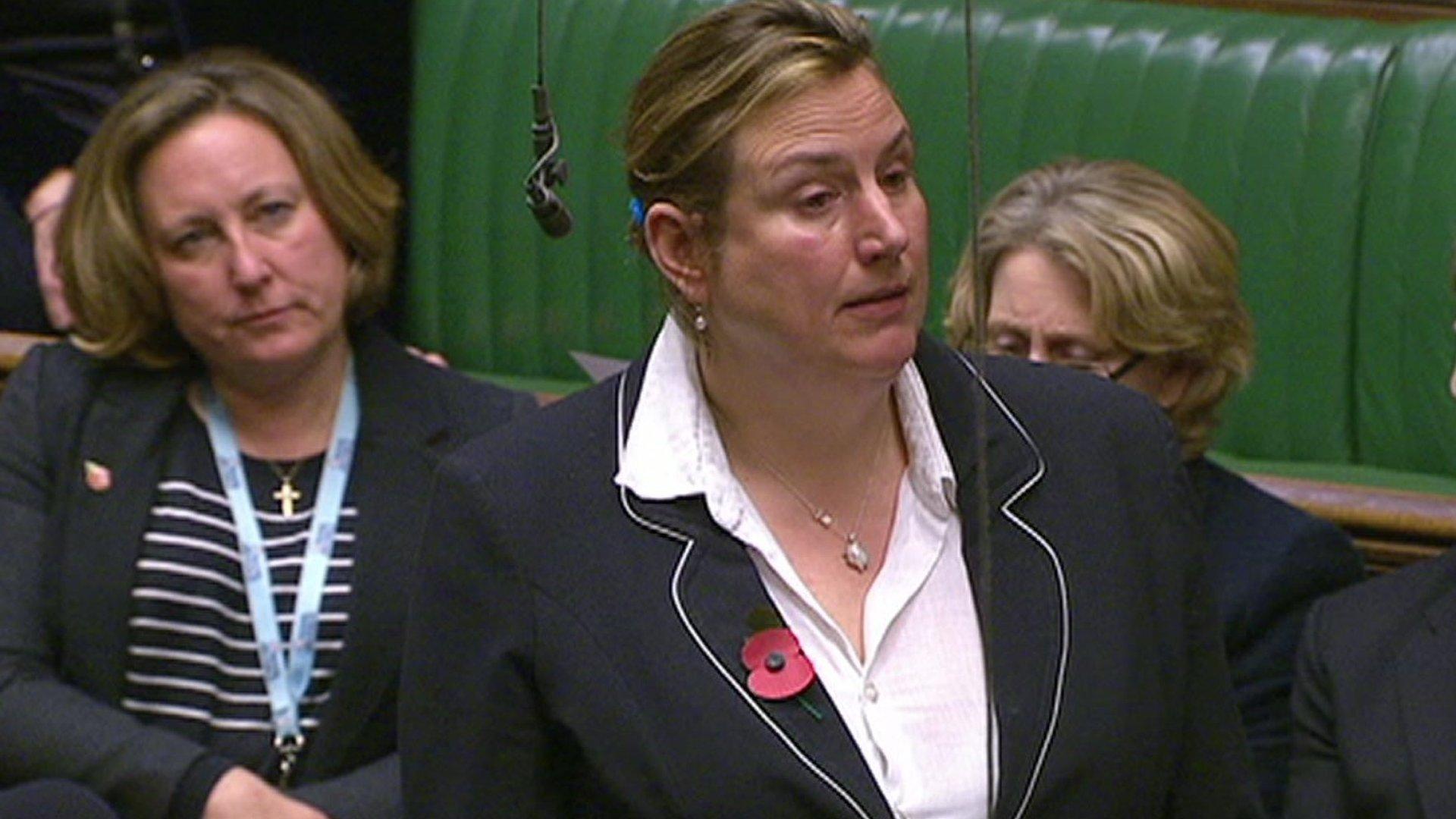
- Published13 November 2015
